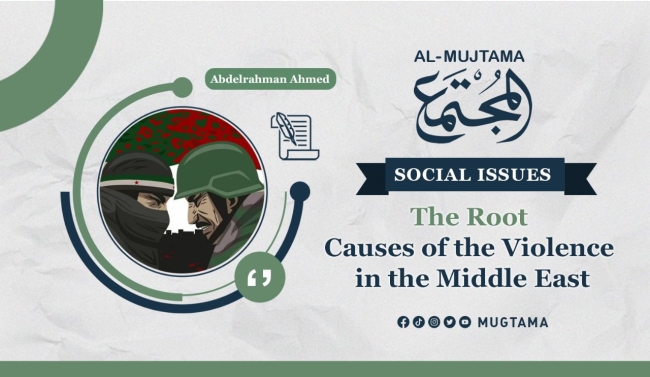The root causes of the violence in the Middle East
Patrick Cockburn, a renowned journalist, recently published a report in The Independent, shedding light on the challenges faced by secular and nationalist systems in the Middle East. Cockburn's analysis emphasizes the erosion of trust resulting from conflicts in Afghanistan, Iraq, and Lebanon. He contends that most governments in the region are marred by corruption, supported by oppressive security apparatuses, and, despite their proximity to the United States, lack significant influence.
Root Causes of Escalating Violence:
Cockburn delves into the true underlying cause of the escalating violence in the Middle East, attributing it to the resurgence of imperial dominance and foreign occupation after half a century of European colonial empires leaving the region.
American Perspective and Biden's Response:
An American academic, Ian Lustick, critiques President Joe Biden's response to the recent Israeli attacks. While acknowledging Biden's sympathy towards Israelis and unequivocal condemnation of the attacks, Lustick argues that emotional engagement does not necessarily translate into political efficacy. He posits that expressing aversion alone is insufficient to prevent a recurrence of the sufferings of both innocent Israelis and Palestinians, Instead, Lustick suggests focusing on dismantling the institutionalized repression, hatred, and fear that constitute the real infrastructure of violence.
Analyzing the Emotional Reaction vs. Structural Change:
Lustick, in an article for Foreign Policy, asserts that emotional reactions from Washington will not deter future violence. He contends that dismantling Gaza's prison is the key to achieving this, highlighting the importance of addressing the systemic infrastructure of repression. According to Lustick, this infrastructure is rooted in perpetual poverty, unending shock, and imprisonment experienced by the majority of people living in what Israelis refer to as the "coastal envelope."
October 7th Attacks and Shifting Dynamics:
The coverage of the October 7th attacks has drawn comparisons with the 1973 Yom Kippur War, where Israeli intelligence myths were shattered. However, the shock of failure this time is more profound. The threat no longer lies in the Israeli military's superior capabilities against Arab states, but in the idea that Israel leads a "normal" life as a Jewish Zionist villa protected by concrete and steel walls amid the dark Middle Eastern forest surrounding it.
Historical Context and Paradigm Shift:
The author of "The Missing Model: From Two-State Solution to the Reality of One State" emphasizes the need for a paradigm shift to address the root causes of the recent massacre and the inevitable future occurrences. He urges a recognition that the narrative did not commence on the morning of Saturday, October 7th, 2023, but traces back to 1948 with the partition of Palestine and the displacement of approximately 750,000 Palestinians. This shift in narrative unveils that movements like Hamas and Islamic Jihad did not initiate the conflict but rather initiated a rebellion within the prison, as described by the author.
Conclusion:
In conclusion, Patrick Cockburn's report provides a comprehensive analysis of the challenges faced by secular and nationalist systems in the Middle East, attributing the rise in violence to the resurgence of imperial dominance and foreign occupation. Ian Lustick's critique of President Biden's response emphasizes the need for structural change rather than mere emotional reactions to prevent future violence. The historical context and paradigm shift proposed by the author of "The Missing Model" underscore the urgency of addressing root causes to pave the way for a more stable and just future in the Middle East.


